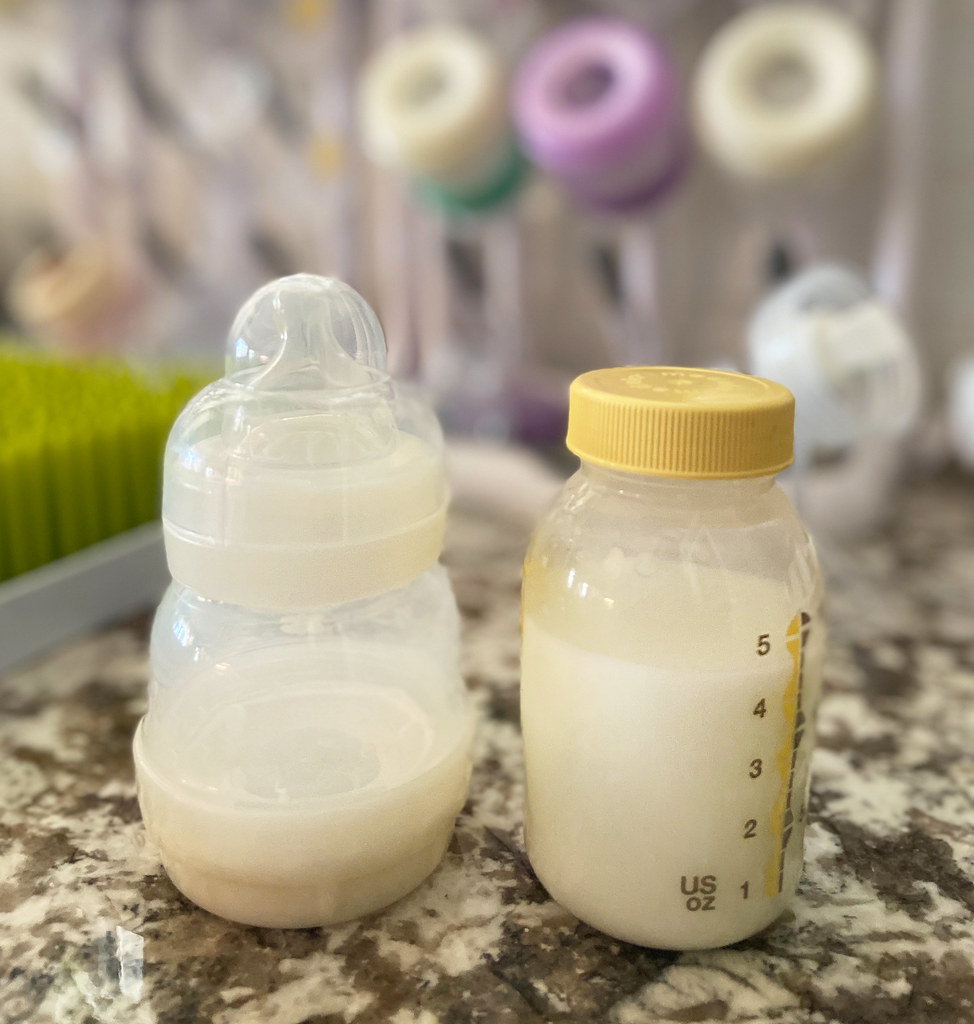How Much Breast Milk Should You Feed Your Baby per Meal?
Introduction: Breast milk is the best source of nutrition for your baby. It provides all the necessary nutrients, antibodies, and enzymes to help your little one develop and grow. However, determining the right amount of breast milk to feed your baby per meal can be tricky.
Every baby is different, and their needs may vary based on age, weight, and overall health. Here are some general guidelines to help you understand how much breast milk to feed your baby per meal.

Factors to Consider
Before diving into specific quantities, it is essential to consider a few factors that may affect how much breast milk your baby needs:
-
- Age: Newborns have tiny tummies and need smaller amounts of breast milk per feeding. As they grow, their stomach capacity increases, requiring more milk.
-
- Weight: Babies who weigh more generally need more milk to satisfy their hunger and support their growth.
-
- Feeding Frequency: Some babies prefer smaller, more frequent feedings, while others may prefer more extensive, less frequent feedings. It’s essential to understand your baby’s feeding patterns and adjust accordingly.
-
- Activity Level: Active and energetic babies may require more milk to meet their energy needs.
General Guidelines for Breast Milk Feeding
While there is no one-size-fits-all answer, here are some general guidelines to help you determine how much breast milk to offer your baby per meal:
Newborns (0-3 months)
-
- Start with 1.5 to 3 ounces (45-90 milliliters) per feeding.
-
- Offer breast milk every 2-3 hours as your baby’s hunger cues indicate.
-
- Remember that newborns may need to be fed more frequently and have smaller amounts per feeding.
How Much Breast Milk 3-6 Months
-
- Offer 3 to 5 ounces (90-150 milliliters) per feeding, gradually increasing as your baby’s appetite grows.
-
- Feeding frequency may be reduced to every 3-4 hours, but it can still vary.
-
- Observe your baby’s cues for hunger and fullness to determine if they need more or less milk.
6-12 Months
-
- Continue offering breast milk or introduce solid foods based on your pediatrician’s guidance.
-
- Breast milk may still be essential to your baby’s diet, but the amount may vary as solid foods become more significant.
-
- Offer breast milk before or after solid meals per your baby’s preference.
Remember, these are general guidelines, and your baby’s needs may differ. Communicating with your pediatrician and following their advice based on your baby’s unique requirements is crucial. Trust your instincts as a parent and respond to your baby’s cues for hunger and fullness. Happy feeding!
The recommended amount of breast milk for infants
The recommended amount of breast milk for infants varies depending on age and weight. However, the general guideline is that newborns typically consume about 2-3 ounces (60-90 ml) of breast milk per feeding in their first few weeks. As they grow, they will gradually increase their intake and may consume around 25-30 ounces (750-900 ml) daily by the time they are one month old.
It’s important to note that every baby is different, and some may require more or less milk, depending on their needs. It is recommended to feed on demand and let the baby determine how much breast milk they need. It’s also essential for the mother to ensure she is adequately hydrated and eating a balanced diet to produce enough milk for the baby’s needs.
Consulting with a healthcare professional or a lactation consultant can provide personalized guidance on the appropriate amount of breast milk for a specific infant.
Breast milk quantity by age of the baby
Breast milk quantity can vary depending on the age of the baby. Here is a general guideline for breast milk quantity by age:
1. Newborn (0-1 month): Newborns typically consume around 1-2 ounces (30-60 milliliters) of breast milk per feeding. They may nurse about 8-12 times in 24 hours.
2. 1-2 months: Babies at this age may consume around 2-4 ounces (60-120 milliliters) of breast milk per feeding. They may nurse about 7-9 times per day.
3. 3-4 months: Breast milk intake may increase to around 4-6 ounces (120-180 milliliters) per feeding. Babies may nurse about 6-8 times per day.
4. 4-6 months: Breast milk intake may increase to around 6-8 ounces (180-240 milliliters) per feeding. Babies may nurse about 5-7 times per day.
5. 6-12 months: Breast milk intake may remain 6-8 ounces (180-240 milliliters) per feeding. Babies may nurse about 4-6 times per day.
It’s important to note that these are general guidelines, and individual babies may have different needs. It’s best to consult a healthcare provider or lactation consultant for personalized guidance on breastfeeding and breast milk quantity for your baby.
Feeding schedule for breastfed babies
Navigating the feeding schedule for breastfed babies can seem overwhelming, especially for new parents. However, it’s important to remember that every baby is unique, and there is no one-size-fits-all approach. Here are some general guidelines to help you establish a feeding schedule:
Newborns (0-3 months): During the first few weeks, breastfed babies typically feed every 2-3 hours around the clock. They may nurse for 15-20 minutes on each breast. The time between feedings may stretch to 3-4 hours as they grow.
3-6 months: By this age, babies may be able to go 3-4 hours between feedings during the day. They may also start to sleep longer at night, although some babies still wake up for night feedings.
6-12 months: As babies grow and eat solid foods, their feeding schedule may change. Breastfeeding sessions may become more spaced out, usually around 4 hours apart. However, some babies may still prefer to nurse more frequently.
It’s important to note that breastfed babies feed on demand, meaning they should be fed whenever they show hunger cues, such as rooting, sucking on their fists, or crying. Breast milk is also easily digested, so babies may need to eat more frequently than formula-fed babies.
Remember to trust your instincts and listen to your baby’s cues. They will let you know when they are hungry or full. If you have concerns about your baby’s feeding schedule or growth, consult a pediatrician or lactation consultant for personalized guidance.

